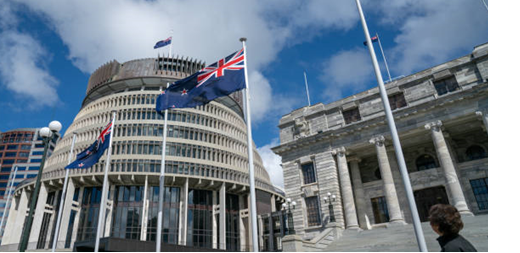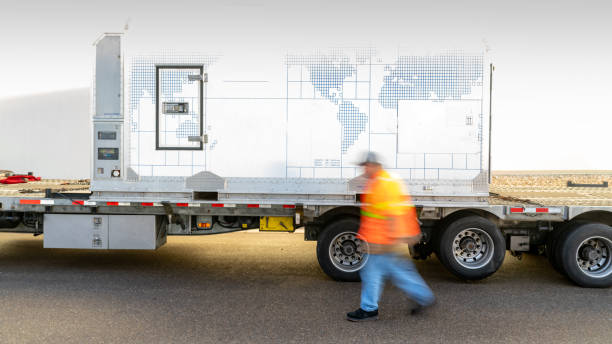News
Tax Talk Newsletter Summer 2024
First steps for tax and income
relief announced
Finance Minister Nicola Willis on 20th December announced time-critical tax and benefit changes together with a commitment to delivering further income tax relief in Budget 2024.
“The coalition Government is progressing a number of commitments to address the growing cost of living, deliver income tax relief and reduce the tax burden. We know Kiwis are doing it tough as inflation and higher average tax-rates erode household incomes. We are determined to bring down inflation and let people keep more of what they earn.
“Today I am announcing our immediate decision to bring the brightline test for residential property back to two years, effective from 1 July 2024. Removing this effective capital gains tax means that properties sold after 1 July 2024 will only be subject to the rule if owned for less than two years.
“I am also confirming the Government’s commitment to fully restoring interest deductibility for rental properties, with details of the phasing of this commitment to be the subject of an announcement in the New Year.
“The Government is progressing work to deliver meaningful income tax reduction in next year’s Budget. This includes considering design and implementation advice for the delivery of our proposed Family Boost childcare tax rebate, and for delivering income relief to workers and their families.
“Work is continuing to uphold the commitment in the ACT-National Coalition Agreement to consider the concepts of ACT’s income tax policy as a pathway to delivering National’s promised tax relief, subject to no earner being worse off than they would have been under National’s plan.
“The advice we have received so far gives the Government confidence that we can responsibly deliver the tax relief New Zealanders deserve.
“In today’s mini-Budget we are also announcing our decision to index main benefits to CPI inflation from 1 April 2024. This change will protect the real incomes of benefit recipients while putting the benefit system on a more sustainable footing.
“This early decision is expected to mean that main benefits will be higher next year than they would have been if we had retained the current index to wage growth.
“New Zealanders enduring a cost-of-living crisis and looking for hope this Christmas should be assured: relief is on its way.” want to set up a new AP to help you manage your tax
Budget will be delivered on 30 May 2024.
Plans to deliver tax relief to hard-working New Zealanders, rebuild business confidence and restore the Crown’s finances to order will be unveiled on 30 May, Finance Minister Nicola Willis says.
Minimum wage set for cautious increase
The adult minimum wage rate will increase by 2 per cent to $23.15 an hour from 1 April 2024, Workplace Relations and Safety Minister Brooke van Velden announced today.
“This Government is committed to striking the right balance between protecting the incomes of our lowest paid workers and maintaining labour market settings that encourage employment,” says Ms van Velden.
“The economic context has changed significantly over the past year. While unemployment is currently low, the labour market is softening due to high net migration rates, constrained consumer spending and subdued economic growth. Given these economic headwinds, a cautious approach to the minimum wage is required this year.
“New Zealand’s minimum wage is one of the most generous in the OECD in terms of relativity with the median wage. As a ratio to the median wage, the minimum wage has increased from 62 per cent of the median wage in June 2017 to 72 per cent in June 2023. This has made it harder for businesses to issue pay rises or take on more staff.
“An increase to $23.15 will benefit between 80,000 and 145,000 workers and will give our lowest paid workers more money in their pockets, without hindering job growth or imposing unreasonable costs on businesses.
“Increases to the minimum wage under Labour far outstripped CPI. Between June 2016 and June 2023, overall, the minimum wage increased at nearly twice the rate of inflation, with a 48.8 per cent increase in the minimum wage and a 25.1 per cent increase in CPI. This Government’s approach sets the balance right.
“Moderate annual increases to the minimum wage reflect this Government’s commitment to growing the economy, boosting incomes and supporting job growth throughout New Zealand.
“The increase announced today takes into consideration the current economic conditions and the historically large increases to the minimum wage that have distorted relativities with other wage-earners.
“The increase will be given effect by an Order in Council to be signed by the Governor-General on the advice of the Minister.”
Training wages and starting wages will remain at 80 per cent of the adult minimum wage rate, thereby increasing to $18.52.
Step Closer for European Union Free Trade
Agreement
New Zealand has moved closer to ratifying the New Zealand – European Union Free Trade Agreement (FTA), with the First Reading of legislation to bring the Agreement into force being held in Parliament today.
“Almost a decade after preparatory talks first began on an FTA with the European Union, I’m pleased to be taking forward legislation which will bring the now completed FTA into effect,” says Trade Minister Todd McClay.
“Until now, many New Zealand products have been effectively locked out of the EU market as a consequence of high tariffs and restrictive quotas. The FTA will finally level the playing field for Kiwi businesses in the EU market. It will unlock new opportunities to grow our exports and fast implementation will contribute to achieving the Government’s goal of doubling the value of exports over the next ten years.”
“The Government aims to finish its part of the procedure through Parliament by May this year, so that New Zealand exporters can take advantage of the agreement’s benefits as soon as possible,” Mr McClay says.
The agreement will come into force at an agreed date after New Zealand has passed the implementing legislation and notified the EU. Benefits of the deal include:
- An annual boost to GDP of up to $1.4 billion, and increase of exports to the EU by up to $1.8 billion per year by 2035.
- Duties removed on 91% of New Zealand’s goods exports to the EU from entry into force, rising to 97% after seven years.
- Tariff savings of $100 million per year on New Zealand exports to the EU from day one – the highest immediate tariff savings of any New Zealand FTA. This includes the removal of tariffs on products like kiwifruit, M?nuka honey, fish and seafood, onions, wine and industrial products.
- Additional quotas for meat and dairy.
Worker’s electric shock was preventable
An electric shock which cost an Auckland scaffolder both his arms could have been avoided if his employer had paid closer attention to who was authorised to do the work. The worker was dismantling scaffolding in April 2022, when a steel pole he was holding contacted an overhead powerline in the West Auckland suburb of Massey. As a result of the incident, he received high voltage electrical burns to his upper and lower limbs, including an exit wound of the electrical charge through his left foot. Both arms were amputated to the upper bicep, and he will need daily assistance for routine activities for the rest of his life given the nature of his injuries.
The employer has now been sentenced for its health and safety failures.
The worksite had been given a Close Approach Consent, which is required when work is being done near overhead powerlines. The consent required the crew that put up the scaffolding to be the same crew that took it down, for safety reasons. However, WorkSafe found that none of the four-man dismantling crew had been involved at the outset. The initial crew received a briefing on how workers could safely operate under high-voltage lines, but not the dismantling crew.
Companies need to make sure that expert information they receive is shared with all workers who need it.
“The worker was a young man who went to work fit and healthy, and now has an ongoing struggle to adjust to a fundamentally different way of life. His attitude, bravery, and determination to keep going is a testament to his strength of character,” says WorkSafe’s area investigation manager.
“Anyone working in or around electricity, especially high voltage lines, needs to be aware of the specific requirements that come with Close Approach Consents. Lines companies can assist with the consent process if needed. For a seemingly simple communication breakdown to have such far-reaching consequences is horrendous.”
Background
The Company was sentenced at Waitakere District Court on 13 November 2023. Fine reduced to $0 due to the company’s inability to pay. Details of the reparations were suppressed by the Court.
Truck driver death due to poor traffic management
Businesses need to keep their workers safe around vehicles and doing so can save lives, says WorkSafe New Zealand following the sentencing of a Southland business today.
A Southland business was contracted to load and unload palm kernel extract at a warehouse leased in Bluff. In turn, the business contracted trucks and drivers from a Transport Services business. One of those drivers was standing behind his truck when he was struck and killed, as another driver was reversing a front-end loader in February 2017.
“Clear separation of workers and moving vehicles is an absolute must in workplaces. Designated safe zones for people, alongside bollards or barriers to control the traffic flow are cost-effective ways to keep safe,” says WorkSafe’s acting national manager of investigations, Catalijne Pille. A WorkSafe investigation found the business should have had a more effective system in place for traffic management and should have consulted with the other trucking firms it worked with to manage the risks.
“Too much emphasis was placed on workers being vigilant, as opposed to businesses managing risks by preventing dangerous situations for workers. More could and should have been done by way of traffic management to ensure a safe system of work.”
Following a judge-alone trial in June 2023, the company was found guilty of health and safety failures.
The company pleaded guilty and was sentenced in October 2022 for their involvement.
Background: A fine of $577,500 was imposed and reparations of $115,896 ordered.
Making a decision on the most productive social media channels
When you chose the social media platforms on which to advertise your business, how did you decide?
We’ve all heard of Facebook, Instagram, LinkedIn, YouTube and TikTok, but there are so many options out there! Some of the alternative social media platforms offer more niche followers, such as Neighbourly and Pinterest.
Here are Digital Boost’s top three tips to think about when choosing a social media platform for your business:
- Customer personas. To reach your customers, you need to know who they are. Once you’ve narrowed down who you’re targeting, find out what platforms they use and focus your efforts there.
- You don’t have to stick to mainstream channels if your offering is more niche – you could save by advertising on social media platforms that aren’t Facebook and Instagram. For example, if you’re selling jewellery, Pinterest could be a good alternative. If you’re in TV and film, you could benefit from Reddit’s huge communities.
- Does it have a dashboard? Today, having good real-time data means you can adjust your spend and focus your efforts where it matters the most. So ask yourself: what can each social media channel offer me in terms of reporting? Being able to monitor and measure how well your posts and ads are performing allows you to make better decisions and refine your strategy as you go.
Assess your cyber risk
Taking your business online comes with many rewards, such as greater reach, rising profits and efficiency gains. But it also comes with risks.
Here are five steps to performing a cyber security risk assessment so you can ensure your business is prepared to get online.
- List your important systems and whether they're inside or outside your organisation. Note the kind of data they hold.
- Identify threats. Consider how valuable your data is and how easily your systems could be attacked, especially if they're online.
- Evaluate the risks. Think about what could go wrong with your data or systems – like if they're no longer private, correct, or available.
- Understand the impact. Figure out how each risk might affect your business, such as operationally, reputationally, financially or technically. Rate them as low, medium or high impact.
- Take action. Implement measures to reduce, transfer or accept risks. Share your plan with your team, and create a response plan for incidents. Regularly review your risk assessment as things change.
Important: This is not advice. Clients should not act solely on the basis of the material contained in the Tax Talk Newsletter. Items herein are general comments only and do not constitute nor convey advice per se. Changes in legislation may occur quickly. We therefore recommend that our formal advice be sought before acting in any of the areas. The Tax Talk Newsletter is issued as a helpful guide to our clients and for their private information. Therefore it should be regarded as confidential and should not be made available to any person without our prior approval.




